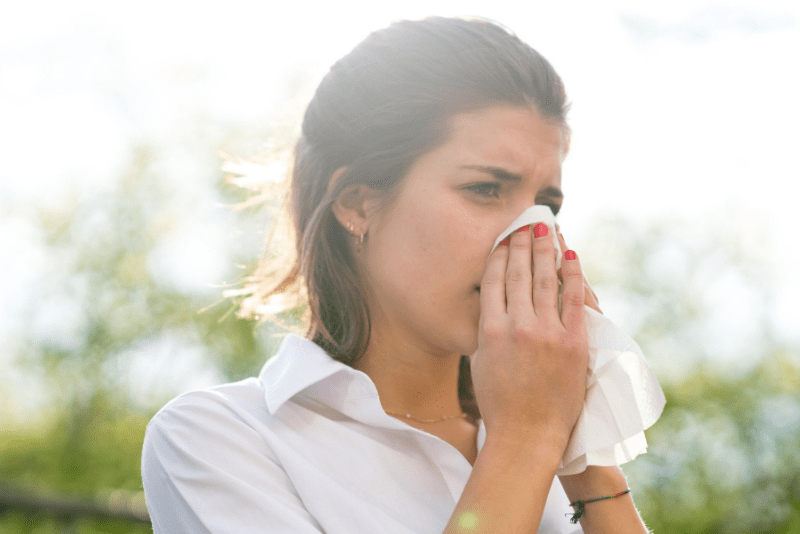Grab a hat and take a coat! Allergy season doesn’t end when cold weather arrives. Frigid temperatures can mean more of the same (and sometimes worse) for allergy sufferers around the world.
As winter months roll in across the country, keep an eye out for signs of reactions that you may not notice throughout the rest of the year. Sinus symptoms that might seem uncommon to you during this time could be a sign that you are living with an allergy to cold temperatures.
What is cold urticaria?
Cold urticaria, or skin allergies related to the cold, occur when one’s body exhibits adverse reactions when exposed to colder temperatures – typically 39 degrees Fahrenheit or below. This rare condition is classified as a chronic, reactive skin disorder.
Cold temperature allergies are categorized into either essential (acquired) cold urticaria or familial (hereditary) cold urticaria. Those with familial cold urticaria have inherited this disorder from their family genes. Essential cold urticaria, on the other hand, is developed independently from one’s family medical history.
It is important to note that these cold allergies are not strictly related to the temperature outside. Those living with cold urticaria can find themselves reacting to cold beverages and food, like iced tea or popsicles, as well as chilly swimming pools and more.
The exact figures of those affected by this condition are unknown, but experts estimate that cold urticaria affects one in 100,000 people.
Symptoms
Reactions of those living with familial cold urticaria will typically make themselves known within 24 – 48 hours of the initial exposure and remain present for about as long.
Symptoms of people with essential urticaria will notice symptoms appear within five to 30 minutes following exposure to the irritant. These symptoms fade much quicker than those with familial allergies, passing within 30 minutes of flaring.
Checking weather reports is encouraged for those living with cold allergies even outside of winter months, as damp and windy atmospheres may also cause reactions to flare up.
Signs and symptoms of a cold allergy-related reaction may include:
- Temporary rash or hives on the area of skin exposed to the cold
- Swelling of the hands when holding a cold object
- Swelling of lips from cold beverage or food
Severe reactions may include:
- Anaphylaxis
- Fainting or entering a state of shock
Some living with this disorder may find that reactions will continue to worsen as their skin begins to warm up.
Treatment, precautions and beyond
Like with most allergies, avoiding the allergen is the best course of action in sidestepping unwanted reactions. However, this can be difficult in cases such as this where the allergen is simply temperature.
If exposure to cold is simply unavoidable, one can take steps to reduce the likelihood of reactions or lessen their severity at the least, such as taking an antihistamine prior to exposure and always carrying an EpiPen in case of severe reactions.
If you are experiencing symptoms similar to or other than those listed above that you believe may be connected to an allergic reaction, you should schedule an appointment with a board-certified allergist.
Your local board-certified allergist will be able to assist you in discovering and diagnosing the root cause of your symptoms and assist you in exploring options for treatment such as prescribing medication or beginning immunotherapy treatments.




